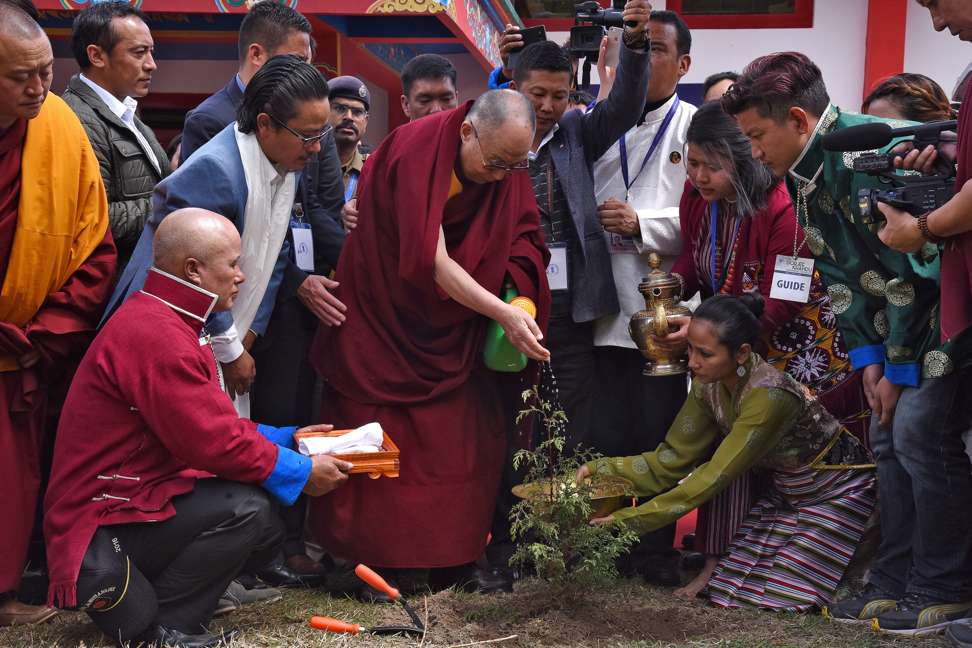
Why India can’t afford to miss out on China’s belt and road plan
K. S. Venkatachalam says the benefits of economic cooperation through the well-funded belt and road project are too many to ignore, and closer trade ties may even help lessen tensions over territorial rows between the two

India-China relations has been plagued by a low level of trust due to unresolved territorial disputes. Even so, ties have hit an all-time low with China’s continued opposition to India’s entry to the Nuclear Suppliers Group, and to India’s efforts to include Jaish e-Mohammed, a Pakistan-based terrorist group, on the UN list of banned terrorist organisations. India sees this as an attempt by China to flex its geopolitical muscle by putting the brakes on its entry on to the global stage. India is also wary of the expansionist policies of China in the South China Sea.
China, for its part, is annoyed with India over Tibetan spiritual leader the Dalai Lama’s visit to Tawang, in the Indian state of Arunachal Pradesh, as Beijing considers Tawang to be originally part of southern Tibet and, therefore, part of China. On the other hand, India has repudiated the Chinese claim, citing a treaty signed by the British and Tibetan representatives, under which Arunachal Pradesh was declared part of India.
Though there appears to be no mutually acceptable solution to the dispute, there are ways to lessen the tension. First, India should join the “Belt and Road Initiative”, a brainchild of Chinese President Xi Jinping (習近平), which aims to link Asia with Europe for trade and other exchanges. By joining this project, India can benefit from Chinese investment in infrastructure projects, and hasten its economic development through trade connectivity from Asia to Eurasia.
India’s insistence on keeping a distance from the belt and road is mainly due to its apprehension that the project will only serve China’s economic interests by giving a fillip to its steel and cement industries, which are facing problems of overcapacity. Second, India has not taken kindly to China’s infrastructure projects in the China-Pakistan Economic Corridor, which runs between Xinjiang (新疆) and Gwadar in Baluchistan, and goes through Pakistan-occupied Kashmir and Gilgit-Baltistan, which India claims to be part of the Indian state of Jammu and Kashmir.
But India today faces many challenges. In spite of its phenomenal economic growth, it has a serious unemployment problem, as there are not enough jobs to meet the growing needs of its youth. Against the actual requirement of over 10 million jobs a year, only 100,000 jobs were created in the last fiscal year. If India fails to create enough jobs for its millions of unemployed youth, there is a danger of social unrest erupting. It is here that the belt and road project can help India – by creating jobs for both skilled and unskilled workers. Further, it will give a tremendous boost to India’s stagnant exports.

If India refuses to join the project, one fears that it will be left out of the economic transformation through the belt and road. India’s apprehension that the initiative will merely serve China’s interests shows that New Delhi underestimates the transformative potential of the project.
By joining China, India could also play a pivotal role in lessening tensions with its giant neighbour, as well as Pakistan. The huge commercial considerations from the project could force these countries to keep contentious issues on the back-burner.
For its part, Beijing, in spite of its difficult relations with New Delhi, has shown an eagerness for India to participate in the belt and road enterprise. India should take full advantage of this historic opportunity. China is investing billions in the project through channels such as the Asian Infrastructure Investment Bank, of which India is a founding member; India should try to avail itself of such financial assistance.
Both India and China should realise that a confrontational approach is not in their best interests. Only by engaging with one another can they build an edifice of good neighbourly relations that can bring prosperity to both.
The belt and road presents a great opportunity to achieve this.
K. S. Venkatachalam is an independent columnist and political commentator